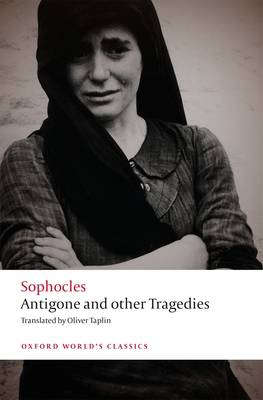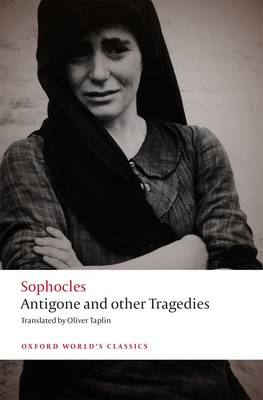
- Retrait gratuit dans votre magasin Club
- 7.000.000 titres dans notre catalogue
- Payer en toute sécurité
- Toujours un magasin près de chez vous
- Retrait gratuit dans votre magasin Club
- 7.000.0000 titres dans notre catalogue
- Payer en toute sécurité
- Toujours un magasin près de chez vous
6,95 €
+ 13 points
Description
Sophocles stands as one of the greatest dramatists of all time, and one of the most influential on artists and thinkers over the centuries. His plays are deeply disturbing and unpredictable, unrelenting and open-ended, refusing to present firm answers to the questions of human existence, or to provide a redemptive justification of the ways of gods to men or women. These three tragedies portray the extremes of human suffering and emotion, turning the heroic myths into supreme works of poetry and dramatic action. Antigone's obsession with the dead, Creon's crushing inflexibility, Deianeira's jealous desperation, the injustice of the gods witnessed by Hyllus, Electra's obsessive vindictiveness, the threatening of insoluble dynastic contamination... Such are the pains and distortions and instabilities of Sophoclean tragedy. And yet they do not deteriorate into cacophony or disgust or incoherence or silence: they face the music, and through that the suffering is itself turned into the coherence of music and poetry. These original and distinctive verse translations convey the vitality of Sophocles' poetry and the vigour of the plays in performance, doing justice to both the sound of the poetry and the theatricality of the tragedies. Each play is accompanied by an introduction and substantial notes on topographical and mythical references and interpretation.
Spécifications
Parties prenantes
- Auteur(s) :
- Editeur:
Contenu
- Nombre de pages :
- 272
- Langue:
- Anglais
- Collection :
Caractéristiques
- EAN:
- 9780192806864
- Date de parution :
- 03-01-22
- Format:
- Livre broché
- Format numérique:
- Trade paperback (VS)
- Dimensions :
- 124 mm x 188 mm
- Poids :
- 204 g

Les avis
Nous publions uniquement les avis qui respectent les conditions requises. Consultez nos conditions pour les avis.






